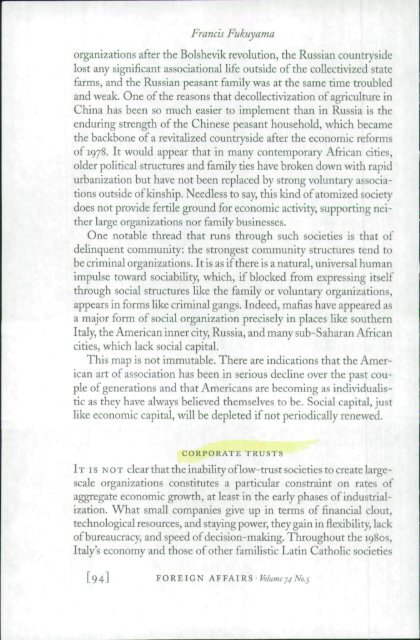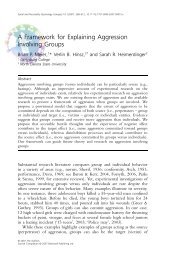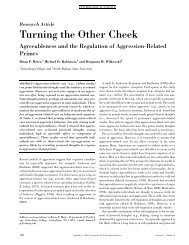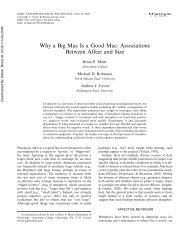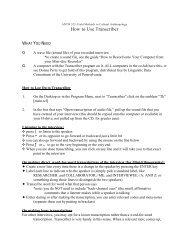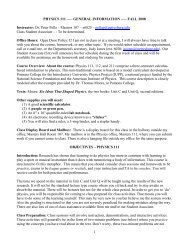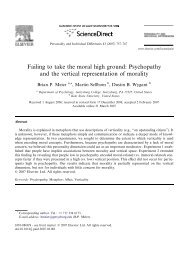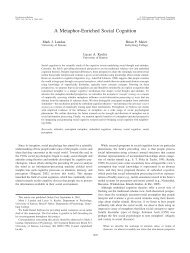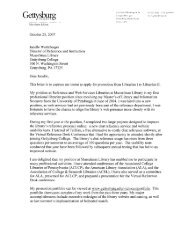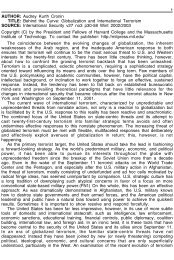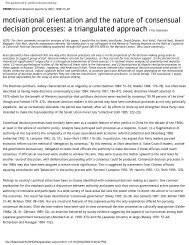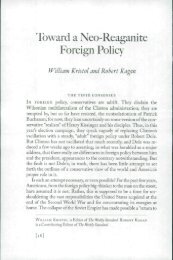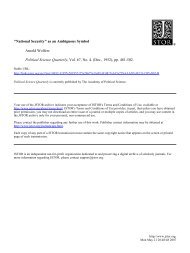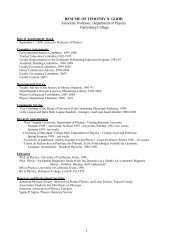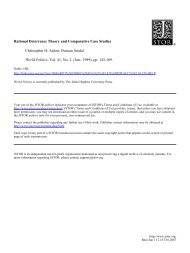Francis Fukuyama. 1995 "Social Capital and the Global Economy."
Francis Fukuyama. 1995 "Social Capital and the Global Economy."
Francis Fukuyama. 1995 "Social Capital and the Global Economy."
You also want an ePaper? Increase the reach of your titles
YUMPU automatically turns print PDFs into web optimized ePapers that Google loves.
<strong>Francis</strong> <strong>Fukuyama</strong><br />
organizations after <strong>the</strong> Bolshevik revolution, <strong>the</strong> Russian countryside<br />
lost any significant associational life outside of <strong>the</strong> collectivized state<br />
farms, <strong>and</strong> <strong>the</strong> Russian peasant family was at <strong>the</strong> same time troubled<br />
<strong>and</strong> weak. One of tbe reasons tbat decollectivization of agriculture in<br />
Cbina bas been so mucb easier to implement tban in Russia is tbe<br />
enduring strength of <strong>the</strong> Chinese peasant bousebold, wbicb became<br />
tbe backbone of a revitalized countryside after tbe economic reforms<br />
of 1978. It would appear tbat in many contemporary African cities,<br />
older political structures <strong>and</strong> family ties bave broken down witb rapid<br />
urbanization but bave not been replaced by strong voluntary associations<br />
outside of kinsbip. Needless to say, this kind of atomized society<br />
does not provide fertile ground for economic activity, supporting nei<strong>the</strong>r<br />
large organizations nor family businesses.<br />
One notable tbread tbat runs tbrougb sueb societies is tbat of<br />
delinquent community: tbe strongest community structures tend to<br />
be criminal organizations. It is as if tbere is a natural, universal human<br />
impulse toward sociability, which, if blocked from expressing itself<br />
tbrough social structures like tbe family or voluntary organizations,<br />
appears in forms like criminal gangs. Indeed, mafias bave appeared as<br />
a major form of social organization precisely in places like soutbern<br />
Italy, tbe American inner city, Russia, <strong>and</strong> many sub-Sabaran African<br />
cities, wbicb lack social capital.<br />
Tbis map is not immutable. Tbere are indications tbat tbe American<br />
art of association bas been in serious decline over tbe past couple<br />
of generations <strong>and</strong> that Americans are becoming as individualistic<br />
as tbey bave always believed tbemselves to be. <strong>Social</strong> capital, just<br />
like economic capital, will be depleted if not periodically renewed.<br />
CORPORATE TRUSTS<br />
IT IS NOT clear that <strong>the</strong> inability of low-trust societies to create largescale<br />
organizations constitutes a particular constraint on rates of<br />
aggregate economic growth, at least in <strong>the</strong> early phases of industrialization.<br />
What small companies give up in terms of financial clout,<br />
technological resources, <strong>and</strong> staying power, <strong>the</strong>y gain in flexibility, lack<br />
of bureaucracy, <strong>and</strong> speed of decision-making. Tbroughout <strong>the</strong> 1980s,<br />
Italy's economy <strong>and</strong> those of o<strong>the</strong>r familistic Latin Catbolic societies<br />
[94] FOREIGN AFFAIRS


